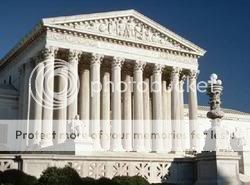House cleaning found this - links no longer active
DATELINE: THE SOUTH - News and trends
SPECIAL REPORT - Health care ruling's fallout in the South
INSTITUTE INDEX - Should Congress trade in what it oversees?
DATELINE: THE SOUTH - News and trends SOUTHERN STATES GET FAILING GRADES FOR SCHOOL FUNDING FAIRNESS: A new report grades states on how effectively they address educational disparities caused by concentrated poverty. It finds that a number of states in the South are not funding public schools adequately or distributing those funds where most needed, with Florida and North Carolina getting overall failing grades. (6/28/2012)
SOUTHERN STATES GET FAILING GRADES FOR SCHOOL FUNDING FAIRNESS: A new report grades states on how effectively they address educational disparities caused by concentrated poverty. It finds that a number of states in the South are not funding public schools adequately or distributing those funds where most needed, with Florida and North Carolina getting overall failing grades. (6/28/2012)
NC BUSINESS GROUPS PREPARE TO UNLEASH BIG MONEY IN STATE ELECTIONS: As expected, this week the Supreme Court reaffirmed its 2010 Citizens United decision. While the ruling's impact on federal races has been well-documented, the influence of shadowy money on state-level races has received less attention -- but could be even more important. (6/26/2012)
IN ALABAMA POULTRY WORKERS VICTORY, A VOTE TO STICK TOGETHER: In the biggest union victory in right-to-work Alabama in a decade, 1,200 Pilgrim's Pride poultry plant workers in the small town of Russellville rejected management's efforts to divide them along racial and ethnic lines and voted to join the Retail, Wholesale and Department Store Union. (6/28/2012)
FEDERAL COURT REJECTS VIRGINIA ATTORNEY GENERAL'S EFFORT TO BLOCK CLIMATE ACTION: The U.S. Court of Appeals in Washington rejects Ken Cuccinelli's challenge to the EPA's finding that unregulated greenhouse gas emissions pose a danger to human health and safety. Cuccinelli, who's running for governor, says he'll take the case to the Supreme Court. (6/27/2012)
UAW TARGETS MISSISSIPPI NISSAN PLANT FOR ITS SOUTHERN CAMPAIGN: The United Auto Workers is focusing its do-or-die Southern campaign on the giant 3,000-worker Nissan plant in Canton, Miss., where many in the largely African-American workforce have already pledged their support for the union. (6/25/2012)
SPECIAL REPORT - Health care ruling's fallout in the South
By Chris Kromm The Supreme Court's closely-watched 5-4 decision upholding the Affordable Care Act, the Obama administration's signature health care reform initiative, has sent shock waves through state legislatures that will carry it out.
The Supreme Court's closely-watched 5-4 decision upholding the Affordable Care Act, the Obama administration's signature health care reform initiative, has sent shock waves through state legislatures that will carry it out.
The fallout from the ruling will be especially interesting to watch in Southern states, which have some of the highest rates of uninsured people -- as well as lawmakers who have been some of the Act's most vociferous critics.
Here's a survey of where Southern states stand and the reaction of state lawmakers and candidates (source unless otherwise noted is Associated Press):
ALABAMA
Number of uninsured: 720,000 state residents are uninsured, or about 15.4 percent.
Where Alabama stood before Supreme Court decision: Republican Gov. Robert Bentley created a commission in 2011 to recommend a plan for a health insurance exchange, but he successfully opposed efforts to enact one in May. Critics said the bill would have limited the exchange to companies operating statewide.
Reaction to Supreme Court ruling: Statement from Gov. Robert Bentley:
I am deeply disappointed by today's Supreme Court decision. The health care law is an overreach by the federal government that creates more regulation, bureaucracy, and a dramatic increase in costs to taxpayers ... The ACA is the single worst piece of legislation to come out of Congress. This law must be repealed. People need more choices, not fewer choices. Bigger government is not the answer. Market-based solutions are the best solutions to giving the public the most affordable options.
ARKANSAS
Number of uninsured: 539,000 state residents are uninsured, or about 19 percent.
Where Arkansas stood before Supreme Court decision: Arkansas opted for a federal-state partnership for its health insurance marketplace. Legislators blocked a bill by which the state would have created its own insurance exchange but have since accepted a grant that will allow it to at least have a role in the federally created exchange.
Reaction to Supreme Court ruling: Statement from Gov. Mike Beebe (D):
We will study the impact the Court's ruling will have on health care in Arkansas going forward. In the mean time, our separate initiative to create cost savings and improve health care in Arkansas continues. Our aim is to set an example other states can follow, regardless of what transpires next in Washington, D.C.
Reactions of other Arkansas lawmakers here.
FLORIDA
Number of uninsured: 3.85 million Floridians are uninsured, or about 21 percent.
Where state stood before Supreme Court decision: On Republican Gov. Rick Scott's orders, Florida rejected or declined to pursue more than $106 million of money for implementing the law and has returned $4.5 million. That state has its own health insurance exchanges, but without an individual mandate, and has not implemented an exchange that would meet the requirements of the Affordable Care Act.
Reaction to Supreme Court ruling: Gov. Scott has reportedly declined to comment on the decision, saying "I need to review it first." Florida's Republican Attorney General Pam Bondi said she was "surprised, shocked."
GEORGIA
Number of uninsured: 1,905,000 state residents are uninsured, or 19 percent.
Where state stood before Supreme Court decision: Georgia has taken no action to implement a health care exchange, and various bills to allow or hinder the state's carrying out of the bill have failed to pass.
Reaction to Supreme Court ruling: Gov. Nathan Deal (R) has not yet responded; Democrats are pressing that Republicans must be "responsible" and move forward on implementation.
KENTUCKY
Number of uninsured: 640,000 state residents are uninsured, or about 15 percent.
Where Kentucky stood before Supreme Court decision: Kentucky began process of creating statewide health insurance exchange, but Democratic Gov. Steve Beshear was waiting for Supreme Court ruling before moving forward.
Reaction to Supreme Court ruling: No formal statement yet from the governor. U.S. Senate Minority Leader Mitch McConnell (R-Ky.) said the court's decision was a "road to repeal."
LOUISIANA
Number of uninsured: 886,000 state residents are uninsured, or about 20 percent.
Where Louisiana stood before Supreme Court decision: Both Republican Gov. Bobby Jindal and Attorney General Buddy Caldwell (R) are on record in opposition to the law, and Louisiana is one of the states challenging it in court.
Reaction to Supreme Court ruling: Statement from Gov. Jindal:
Ironically, the Supreme Court has decided to be far more honest about Obamacare than Obama was. They rightly have called it a tax. Today's decision is a blow to our freedoms. The Court should have protected our constitutional freedoms, but remember, it was the President that forced this law on us.
The American people did not want or approve of Obamacare then, and they do not now. Americans oppose it because it will decrease the quality of health care in America, raise taxes, cut Medicare, and break the bank. All of this is still true. Republicans must drive hard toward repeal, this is no time to go weak in the knees. ...
(To read about the rest of the Southern states, and to comment on this story, click here.)
INSTITUTE INDEX - Should Congressmen trade stock in companies they oversee? Number of members of Congress or their families who traded stock in companies lobbying on matters before their committees from 2007 to 2010, according to a recent Washington Post investigation: 130
Number of members of Congress or their families who traded stock in companies lobbying on matters before their committees from 2007 to 2010, according to a recent Washington Post investigation: 130
Percent of those lawmakers who were Democrats: 52
Who were Republicans: 48
Portion of all stock trades by lawmakers that intersected with legislation they were involved with: 1 in 8
Number of prohibitions on this practice under current ethics rules: 0
Number of members of Congress who sold all of their stock in a company under investigation by the Senate Commerce Committee for deceptive internet billing practices before the results of the probe became public: 4
Number of Congressmen who recast their financial portfolios during the financial crisis after phone calls or meetings with Treasury Secretary Henry M. Paulson Jr.; his successor, Timothy F. Geithner; or Federal Reserve Chairman Ben S. Bernanke: 34
Number of trades that Sen. Mitch McConnell (R-Ky.) made on Jan. 31, 2008 following extensive conversations with Paulson about the proposed stimulus bill: 4
Value of each of those trades, which involved mutual funds: $15,000 to $50,000
Value of General Electric stock sold by Rep. Ed Whitfield (R-Ky.) shortly before a Republican filibuster killed legislation that the company had lobbied for to enhance its business: between $50,000 and $100,000
Number of years that Whitfield had held the stock: 12
Value of stock in the defense conglomerate United Technologies that Whitfield sold on the same day in October 2009 that his subcommittee approved a bill affecting the company's operations: $50,000 to $100,000
Number of trades Whitfield made in companies registered to lobby before his committee: 23
Percent of his total reported stock trades those represent: 38
Value of overlapping trades made by Rep. Michael McCaul (R-Tex.), the member of Congress who reported the highest number of such questionable trades: $5 million to $23 million
According to research led by a Georgia State University professor, percent by which House members outperform the market as a whole: 6
Percent by which Senators do so: 10
Date on which Congress passed the Stock Act, legislation introduced by Sen. Joe Lieberman (I-Conn.) that prohibits lawmakers and their staffs from trading on insider information acquired on Capitol Hill: 3/22/2012
Number of prohibitions in the Stock Act against lawmakers trading stock in industries they oversee: 0
(Click on figure to go to source. To comment on this index, click here. Most of the data comes from a Washington Post investigation in which reporters examined 45,000 individual stock transactions computerized by the Center for Responsive Politics' OpenSecrets.org database using financial disclosures filed by House and Senate members.)

No comments:
Post a Comment
Note: Only a member of this blog may post a comment.